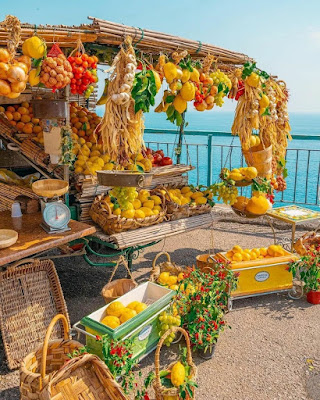On Dambudzo Marechera: The Life and Times of an African Writer
The article below is the work of Helon Habila
Helon Habila is the author of two novels, Measuring Time and Waiting for an Angel, winner of the Caine Prize and the Commonwealth Writers Prize. He is also the author of the biography Mai Kaltungo (1997). In 2005–2006 he was the first Chinua Achebe Fellow at Bard College in New York. He currently teaches creative writing at George Mason University in Fairfax, Virginia. He has been a contributing editor to VQR since 2004.
I got my things and left.
This, the opening line to Dambudzo Marechera’s The House of Hunger, apart from being the coolest opening line in African fiction, is a fair summary of the writer’s life. He was always getting his things and leaving; not that he had many things to get—in his last years, homeless and reduced to sleeping on park benches in Harare, Zimbabwe, all he had were his typewriter and a few books. He died at thirty-five, an age when most writers are just publishing their first novels. It is a mark of his genius that, with only three novellas, some short stories, poems, and essays published during his lifetime, he is regarded today as one of the most influential postcolonial African writers.
Helon Habila is the author of two novels, Measuring Time and Waiting for an Angel, winner of the Caine Prize and the Commonwealth Writers Prize. He is also the author of the biography Mai Kaltungo (1997). In 2005–2006 he was the first Chinua Achebe Fellow at Bard College in New York. He currently teaches creative writing at George Mason University in Fairfax, Virginia. He has been a contributing editor to VQR since 2004.
On Dambudzo Marechera: The Life and Times of an African Writer
Helon Habila
I got my things and left.
This, the opening line to Dambudzo Marechera’s The House of Hunger, apart from being the coolest opening line in African fiction, is a fair summary of the writer’s life. He was always getting his things and leaving; not that he had many things to get—in his last years, homeless and reduced to sleeping on park benches in Harare, Zimbabwe, all he had were his typewriter and a few books. He died at thirty-five, an age when most writers are just publishing their first novels. It is a mark of his genius that, with only three novellas, some short stories, poems, and essays published during his lifetime, he is regarded today as one of the most influential postcolonial African writers.
One of the most interesting instances of Marechera getting his things and leaving was in 1979, when he received a telegram from his publisher in London, James Currey of Heinemann Books, telling him that he had been invited to a cultural festival in West Germany, lasting from June 23 to July 1. The House of Hunger had been published the year before to good reviews, and Marechera was a writing fellow at the University of Sheffield, working on his second book.
The trip to Berlin, from beginning to end, could have been scripted by Marechera. He didn’t have his passport when he arrived at Currey’s office. His shoe had a big hole in the sole because, he said, he had been hitchhiking. Currey said with regards to the German trip many years later, “When you were with Marechera all your ordinary middle-class training was held in suspense.” Instead of sensibly calling off the trip, he said, “Well, let’s see if we can’t get you to Berlin.” At the airport, he was able to convince the immigration officers to let Dambudzo on the plane to Germany without any valid travel document.
The second sentence in The House of Hunger is: The sun was coming up. It must have seemed pretty sunny and promising on the plane after the initial difficulties. But then the third sentence reads: I couldn’t think where to go. With Dambudzo things always had a way of falling apart just at the moment when they seemed most promising.
The second sentence in The House of Hunger is: The sun was coming up. It must have seemed pretty sunny and promising on the plane after the initial difficulties. But then the third sentence reads: I couldn’t think where to go. With Dambudzo things always had a way of falling apart just at the moment when they seemed most promising.
In Berlin, he was promptly arrested by the frontier police and threatened with deportation to London. By the time he was rescued by the conference organizers, the news had spread through the conference halls that a writer was being detained. The festival, tagged “Berlin International Literature Days,” had brought to Berlin almost all the prominent African writers: Bessie Head, Chinua Achebe, Wole Soyinka, Dennis Brutus, Nuruddin Farah, and many others. When he finally arrived at the festival hall, Marechera—perhaps the youngest writer there at twenty-seven—was already a star. Though his name was not on the leading list that night, he was given the opportunity to read. He gave an impassioned reading from The House of Hunger, which was greeted by a standing ovation, and from that moment on, the German media had discovered a hero.
The truth is that the audience had never met an African writer quite like Marechera before—a man with such a sense for the dramatic, a man to whom the boundary between the fictitious and the real is so thin as to be almost nonexistent. He was hijacked from the main conference by another, left-leaning, a group who had organized an alternative conference and who now wanted him to give a press conference on his “travails” in the hands of the German police.



http://mg.co.za/article/2012-03-02-through-closed-doors-with-an-african-prankster
ReplyDelete